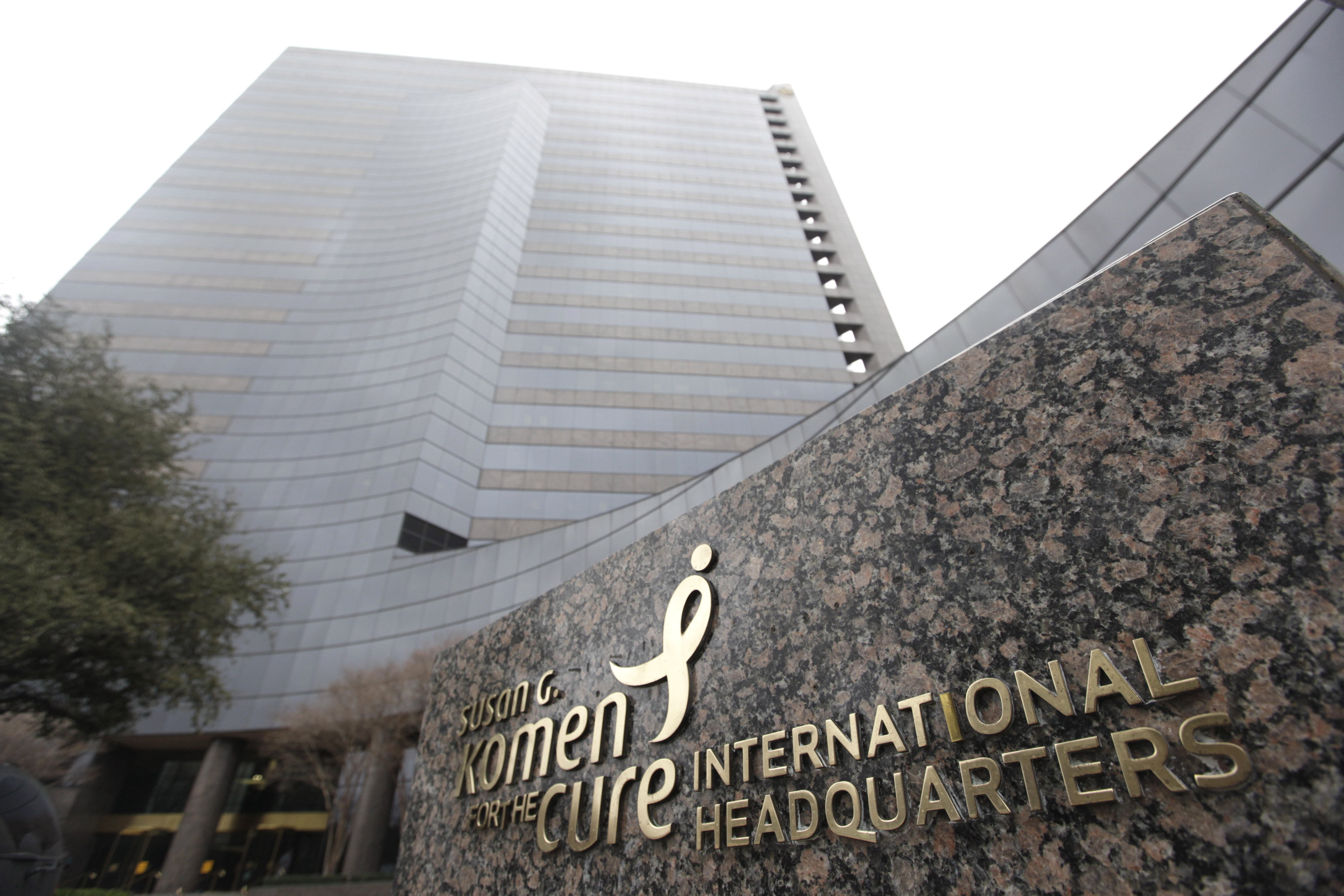Planned Parenthood groups in Chattanooga area benefit from Komen flap
Friday, January 1, 1904
 The Susan Komen For The Cure international headquarters are shown in the Dallas suburb of Addison, Texas, Friday, Feb. 3, 2012. After three days of controversy, the Susan G. Komen for the Cure breast-cancer charity says it is reversing its decision to cut breast-screening grants to Planned Parenthood.
The Susan Komen For The Cure international headquarters are shown in the Dallas suburb of Addison, Texas, Friday, Feb. 3, 2012. After three days of controversy, the Susan G. Komen for the Cure breast-cancer charity says it is reversing its decision to cut breast-screening grants to Planned Parenthood.grant recipients
2012 grant recipients from Chattanooga's Komen chapter:The BeST for Tennessee Women Project grant: Hamilton County Health Department, operating in Bledsoe, Bradley and Polk countiesAccess to Breast Health Education and Mammograms grant: Memorial Healthcare, operating in Northwest Georgia and Southeast Tennessee countiesPromotoras de Salud Breast Cancer Program grant: Northwest Georgia Healthcare Partnership, operating in Whitfield and Murray countiesBreast Health In-Reach Program grant: Erlanger System/UT College of Medicine, operating in Northwest Georgia and Southeast Tennessee countiesSmart Breast Health grant: North Georgia Healthcare Center, operating in Catoosa, Walker, Whitfield and Murray countiesSource: Susan G. Komen Chattanooga chapter
Tennessee may be a conservative state, but that didn't stop an outpouring of support for Planned Parenthood after the Susan G. Komen for the Cure breast cancer charity announced it would cut funding to the group.
In the last week, Planned Parenthood of Middle Tennessee and East Tennessee officials said people walked into their offices with thousands of dollars in donations, and many first-time callers pledged support for the organization.
"We've been pleasantly surprised at the outpouring of support," said Jeff Teague, executive director of the group that runs health centers in Nashville, Knoxville and Johnson City. "These continued attacks on women and women's health issues have started to energize what has been a very silent majority."
The dust-up between the two groups began with The Associated Press reporting Jan. 31 that Komen would exclude Planned Parenthood from future grants for breast-cancer screenings. After a national backlash, Komen reversed its decision Friday, saying it would continue to fund existing grants.
The national firestorm between Komen and Planned Parenthood didn't affect either organization in Tennessee -- no Komen groups in the state provide funding to Planned Parenthood -- but local chapters said they still were inundated with responses.
Karen Edmondson, Chattanooga's executive director for Susan G. Komen, said last week she received 50 to 100 emails and letters, with about half favoring the decision to cut funding and half opposing it.
Chattanooga has not had a local chapter of Planned Parenthood since the early 1990s, Teague said.
Komen originally said it would cease the grants because Planned Parenthood was being investigated by Congress, but Planned Parenthood said Komen was pressured by anti-abortion forces. According to 2012 figures released by Planned Parenthood, only 3 percent of the agency's services involve abortion.
Teague said he hopes all the attention on Planned Parenthood will raise awareness about the group's preventive health care such as affordable birth control, cancer screenings and breast exams.
The state may be ranked as a "red" conservative state politically, but Teague said that polls conducted by Planned Parenthood show the majority of Tennesseans -- in numbers comparable to national polls -- support the organization.
"People have begun to understand the vast majority of our work is preventive work," he said.
According to its tax forms, Planned Parenthood of Middle Tennessee and East Tennessee received $1.4 million in private contributions and grants in 2009 while its expenses totaled $3.1 million.
Teague said patients pay for services to bridge the gap.
According to Komen's Edmondson, the Chattanooga chapter raised about $500,000 last year, with 75 percent of the money going to local groups and 25 percent designated for national cancer research. The chapter decides how to distribute the money it raises based on a community assessment done every two years, Edmondson said.
The 2009 assessment identified the need for mobile breast cancer education to reach women in rural areas and to continue to provide screening, mammograms and treatment services.
